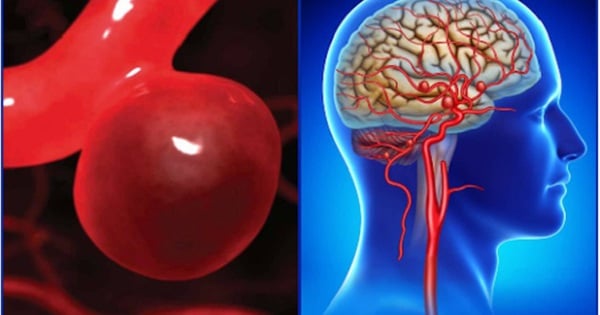I found out that vitamin B12 deficiency can lead to vasculitis and oxidation - two factors that contribute to increased risk of stroke. Is this true? Please explain to me, doctor. (Nguyen Thi Nga, 28 years old, Ho Chi Minh City)
Reply:
Some studies have suggested that vitamin B12 deficiency may increase the risk of stroke, but there is no evidence that deficiency can cause stroke. More in-depth, large-scale studies are needed to confirm these results.
Accordingly, not getting enough vitamin B12 along with a number of other factors can contribute to stroke. Prolonged vitamin B12 deficiency causes an increase in a chemical called homocysteine. Too much homocysteine causes vascular inflammation and oxidative stress. Inflammation leads to damage to blood vessels and the accumulation of excess substances inside the blood vessels. This accumulation can lead to disruption of normal blood flow in the brain. Oxidative stress damages blood vessels, leading to bleeding, eventually forming blood clots, blocking blood flow and causing stroke.
According to a study by Columbia University (USA), low levels of vitamin B12 are often found in stroke survivors. Researchers injected vitamin B12 to achieve optimal B12 levels and reduce the hormone homocysteine in the participants. The results showed that vitamin B12 supplementation significantly reduced the risk of stroke. Vitamin B12 deficiency can cause megaloblastic anemia (the body has few red blood cells and abnormally large red blood cells that cannot function properly). This deficiency causes damage to the white matter of the spinal cord and brain, peripheral neuropathy and dementia.
A blood test can measure vitamin B12 levels. Normal levels range from 200-900 pg/mL. Some signs that may be associated with B12 deficiency include: pale yellow patches on the skin, a painful red tongue, mouth ulcers, impaired vision, headaches, mood swings, anxiety and depression, and gastrointestinal problems.

Vitamin B12 is an important nutrient, involved in many activities in the body. Photo: Freepik
There are many causes of vitamin B12 deficiency, such as diet, the body's inability to fully absorb this nutrient due to illness. Medical conditions and infections that interfere with the stomach's absorption of nutrients or the function of the small intestine can lead to vitamin B12 deficiency, even with a proper and nutritious diet. However, it is more common to have a vitamin B12 deficiency in the diet, especially in long-term vegetarianism.
Heavy drinking and alcoholism can cause vitamin B12 deficiency despite consuming foods rich in vitamin B12. This may be due to metabolic changes in the body that make it difficult to absorb and use vitamin B12.
You should supplement your diet with vitamin B12 if you are deficient. Red meat and liver are two foods that are high in vitamin B12. Other sources of this vitamin include chicken, eggs, milk, shellfish, and fish. Vegans should take vitamin B12 supplements or take supplements as advised by their doctor. People who have poor absorption of vitamin B12 due to stomach or intestinal problems should see their doctor for appropriate treatment.
MD.CKII Pham Ngoc Danh Khoa
Department of Neurology, Tam Anh General Hospital, Ho Chi Minh City
Source link




























































Comment (0)